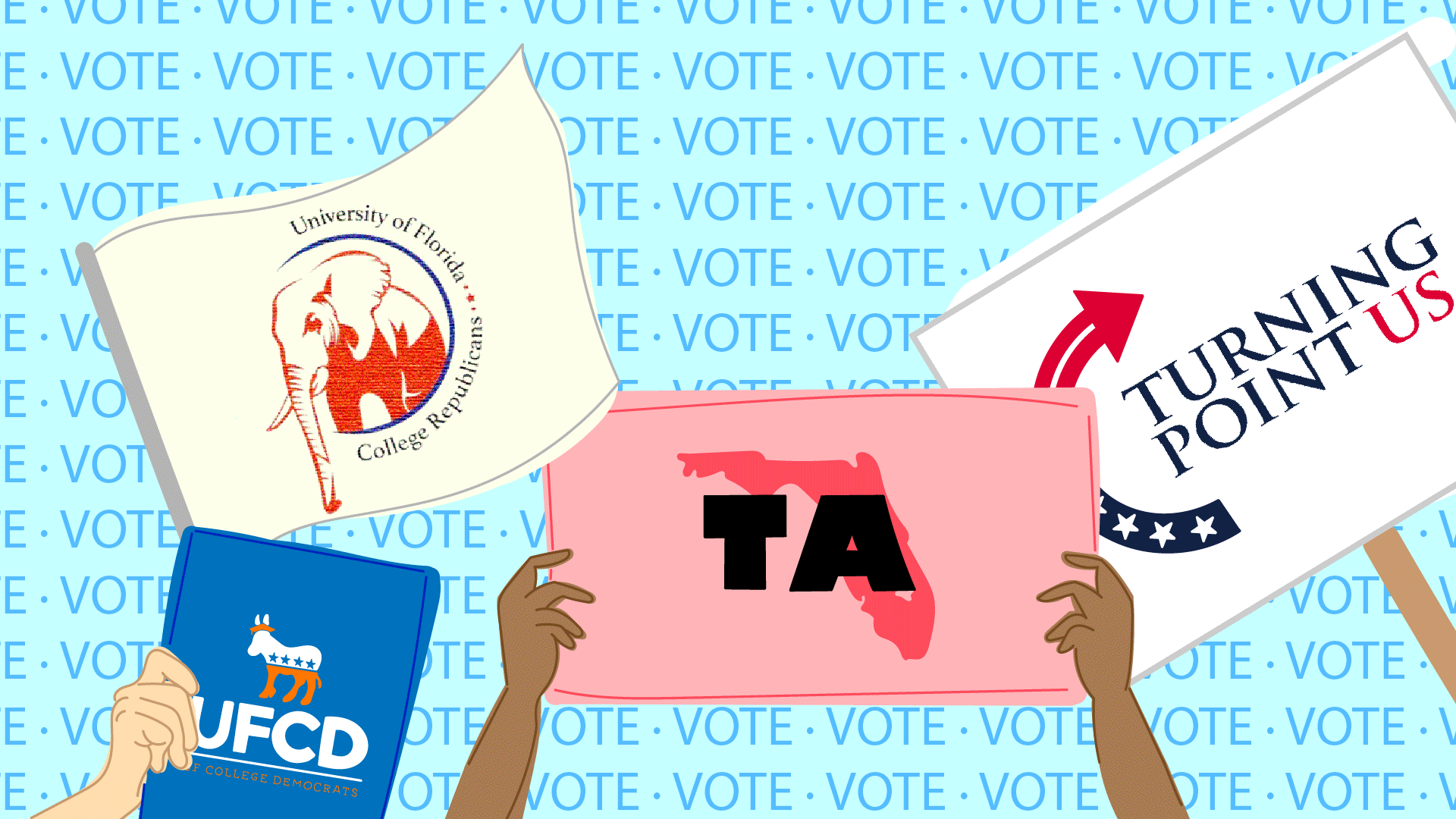The 2016 election is everywhere and spreading fast — faster than Zika or even Kendrick Lamar’s new, surprise album “Untitled Unmastered.” It’s there on your news feed when you go to bed and is provided to you by your local newspaper — hey, what’s up? — when you wake up. From every which way, it’s an adrenaline shot of nothing but primaries, caucuses, debates and He Who Must Not Be Named.
In spite of the coverage, however, not all questions are necessarily answered, such as, “What’s up with this delegate system?” For all those who nod in reluctant agreement at your “politically versed” roommate or zone out whenever Wolf Blitzer describes delegate appropriations (or anything, really), we at the Alligator have your back.
Think of the delegate system as a long series of middlemen. When you vote or your state’s caucus casts support toward a candidate, that support goes not directly to the candidate, but to a delegate: party activists, local political leaders and the like. These delegates are usually attributed to a candidate on a proportional basis. So, say Kanye West in 2020 won about one third of a state’s primary, he would win one third of the delegates. Local delegates then convene to elect state delegates, who will then actually cast votes at the July conventions. Complicated? It gets worse, because delegate systems vary between political parties and even between states.
In the Republican delegate system, the thing to watch out for is the winner-takes-all status of certain states. In this setup, a candidate must simply pass a certain threshold of voters within a state to assume 100 percent of the state’s delegates. Winner-takes-all states include Florida and Ohio, which is why you heard former GOP presidential nominee Mitt Romney call out to voters last week, encouraging them to vote for Rubio in Florida and Kasich in Ohio in order to snatch winner-takes-all victories from the orangutan frontrunner. (See Michael Beato’s column for more!)
For Democrats, the factor of caution is superdelegates. While delegates are allocated in relation to people’s votes, superdelegates are “unpledged,” meaning they can swing allegiance between Hillary and Bernie up until the July convention, and their job is to support the Democratic National Committee.
What’s the purpose of the superdelegate system? Well, let’s hear it from DNC Chair Debbie Wasserman Schultz herself, who told CNN, “Unpledged delegates exist really to make sure that party leaders and elected officials don’t have to be in a position where they are running against grassroots activists.” We at the Alligator find it ironic that the Democratic Party hosts such an undemocratic system.
But let’s keep in mind that superdelegate allegiance, while currently skewed toward Hillary, is first and foremost to the Democratic Party. Back in 2008, Obama initially fell behind Hillary in superdelegates as well, but with enough Obama voter support, superdelegates eventually pledged to Obama; the same could prove true for Bernie in July.
What’s the solution to this bureaucratic chaos? Get out there and vote. Florida primary polls close March 15, just eight days away. So whether you’re Democrat or Republican, independent or non-affiliated, Team Edward or Jacob, Marvel or DC, make your voice heard — on the ballot, not just Facebook. The stronger our voter turnout is, the closer the delegate systems must bend towards popular desire. Otherwise, we relinquish our democratic authority.





